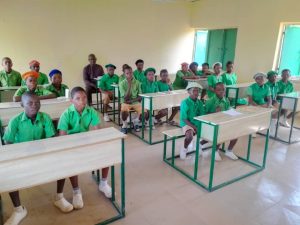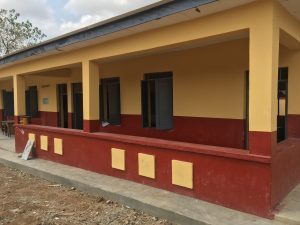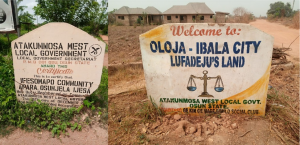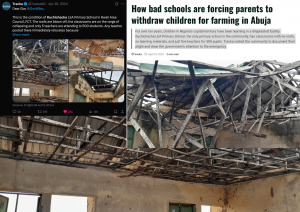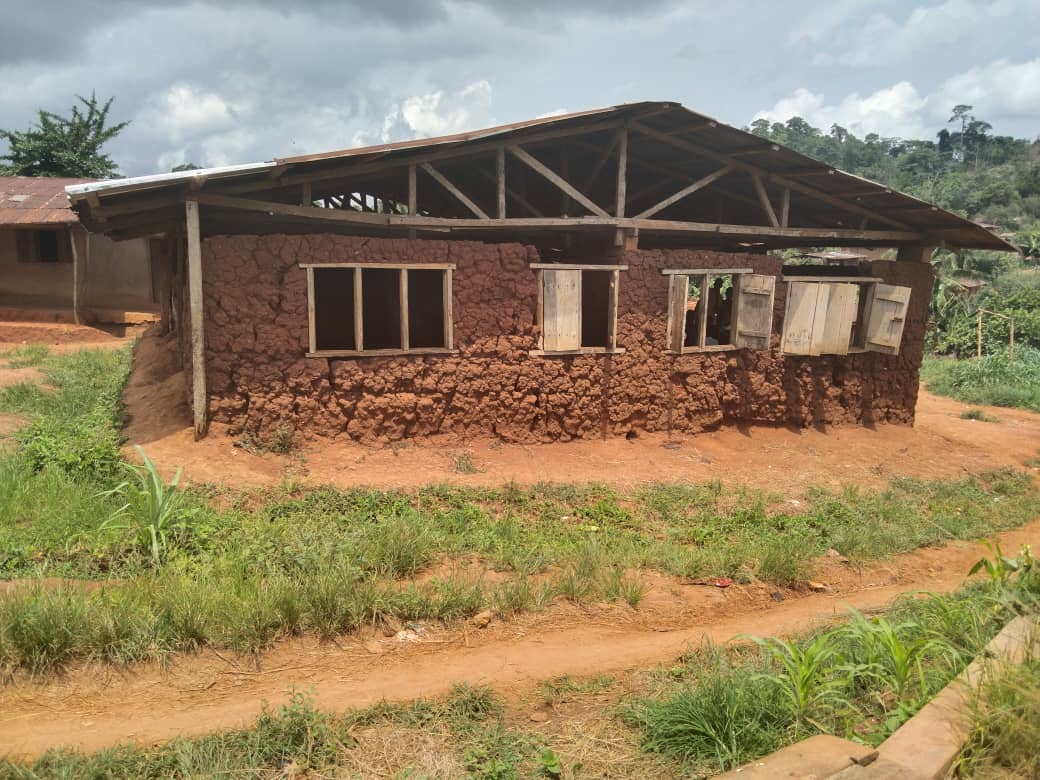
“When two elephants are fighting, the grass suffers.”
In Oloke-Ali community, innocent children are being deprived of a future after a crisis they knew nothing about occurred. The community is cross-cultural and hosts people from different tribes, thereby fuelling occasional land grabbing disputes.
But the land dispute between 2009 -2011 was the most devastating as people lost their lives, schools were destroyed, and over 500 children in the community were educationally displaced.

There are many reasons children drop out of school, and in a crisis-ravaged country like Nigeria, poverty and insecurity top the list. A survey conducted by the United Nations Children’s Fund (UNICEF) indicates that out of school children in Nigeria have risen from 10.5 million to 13.2 million, the highest in the world.
Incidents of violence across the nation are a major contributing factor to Nigeria’s out of school figures. However, incidents of violence differ across regions; terrorism and banditry in the North, militancy and secessionist uprising in the South.
According to a report released by UNESCO, there are significant negative effects left in the wake of an armed conflict, a reduced literacy rate, and a decrease in the average years of education attained. In addition, the report indicates that children generally do not resume their education after a conflict has occurred.
After the schools in Oloke-Ali were destroyed in 2011, the government has not looked back to rebuild them. Children have been left stranded without access to quality education.
Parents who want their children to learn, and are buoyant enough, have to take them to sub-standard private schools to fill the gap. Parents who don’t have the funds send their children to school in another state or keep them at home to assist in farming.

Tracka spoke to Suliat, a cocoa farmer and mother of three. “My children were going to school before, but after the government school closed, I stopped them, and they joined me in farming. Some of their mates attend private schools, but there is no money for that.”
Chief Kunle Akinlade and Chief Gbenga Ambali, the community leaders, said only a few parents could afford to send their children to private schools.
“The school fees in private schools is N4,000 – N6,000 per child. If people have 5kids, that is an average of N20,000. Many people here cannot afford that. What they are even paying for is not quality, and sometimes the children drop out when the parents can no longer keep up with payment.” said Chief Akinlade.
Those particular about educating their children and do not have the funds for private schools send their children to government schools in neighbouring communities in Ondo state.
“Majority of our children now have to go to Obado, Bolorunduro, Kajola or Imoren, all in Ondo state for schooling. The closest community is 7km away from here, and they mostly have to trek there. It is terrible that they have to suffer so much to have access to something basic.
After the crisis in 2011, people left, and teachers withdrew. Now the crisis is over, and the children are bearing the brunt of what they never caused.” said Chief Ambali.

“The government should please revive education in the community to ensure that our children are not left behind. We are over 6,000 in the community, and we don’t have light, water, or good roads, so the least we can get is a good education for our children.” said Alfa Wasiu, a resident.
We urge the Ogun state government, Federal government, and relevant stakeholders to look into this problem. Children living in Ogun and trekking to Ondo every day for schooling is an aberration.
Ogun state’s education budget for 2021 is N57.1bn, 17% of the total budget. This is good as it falls within the AU recommendation benchmark of 15-25% for education budgets. However, these figures need to reflect in the lives of underserved communities in the state.
Story by Ayomide Ladipo and Joshua Osiyemi.
This story is published under Tracka’s #LeadersOfTomorrow, a story series that sheds light on the state of the educational sector in Nigeria, and how it affects the development of children and youths.

